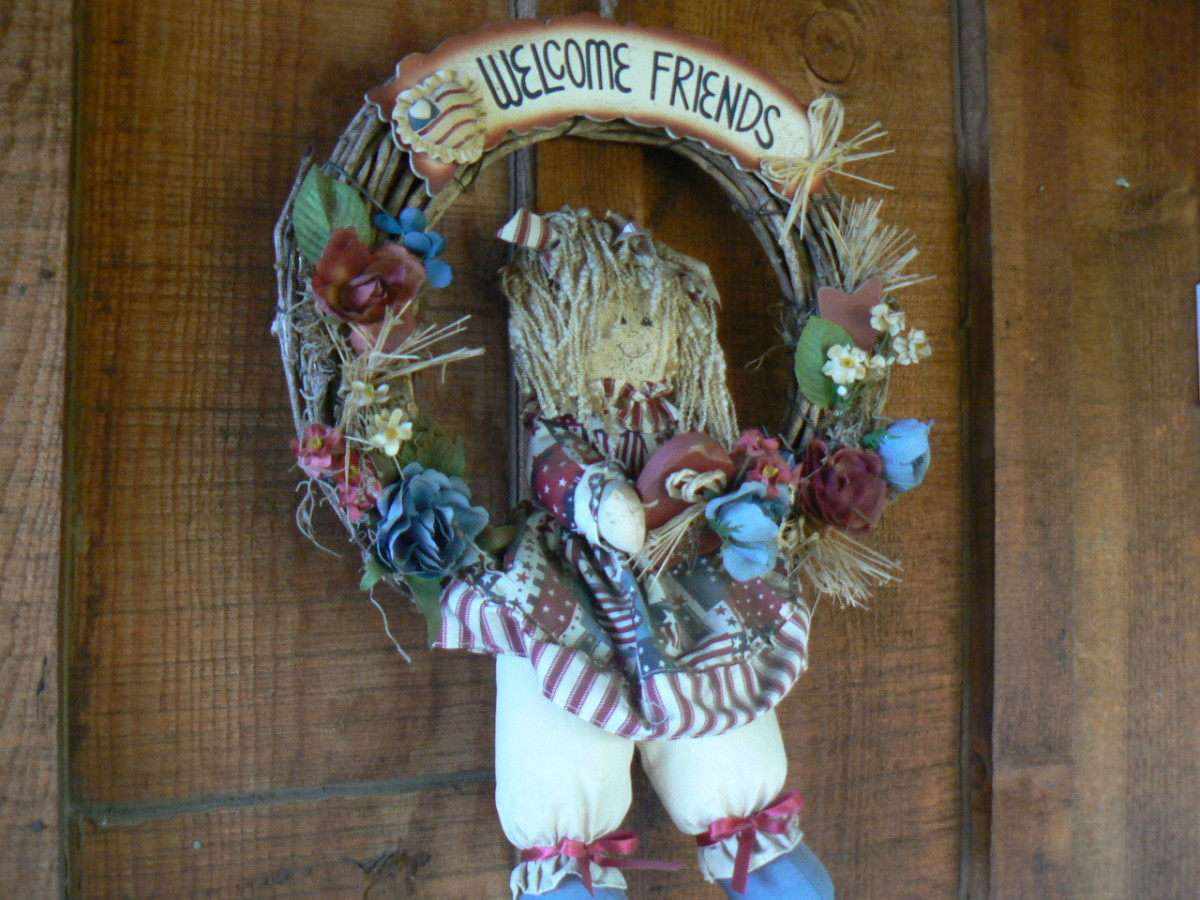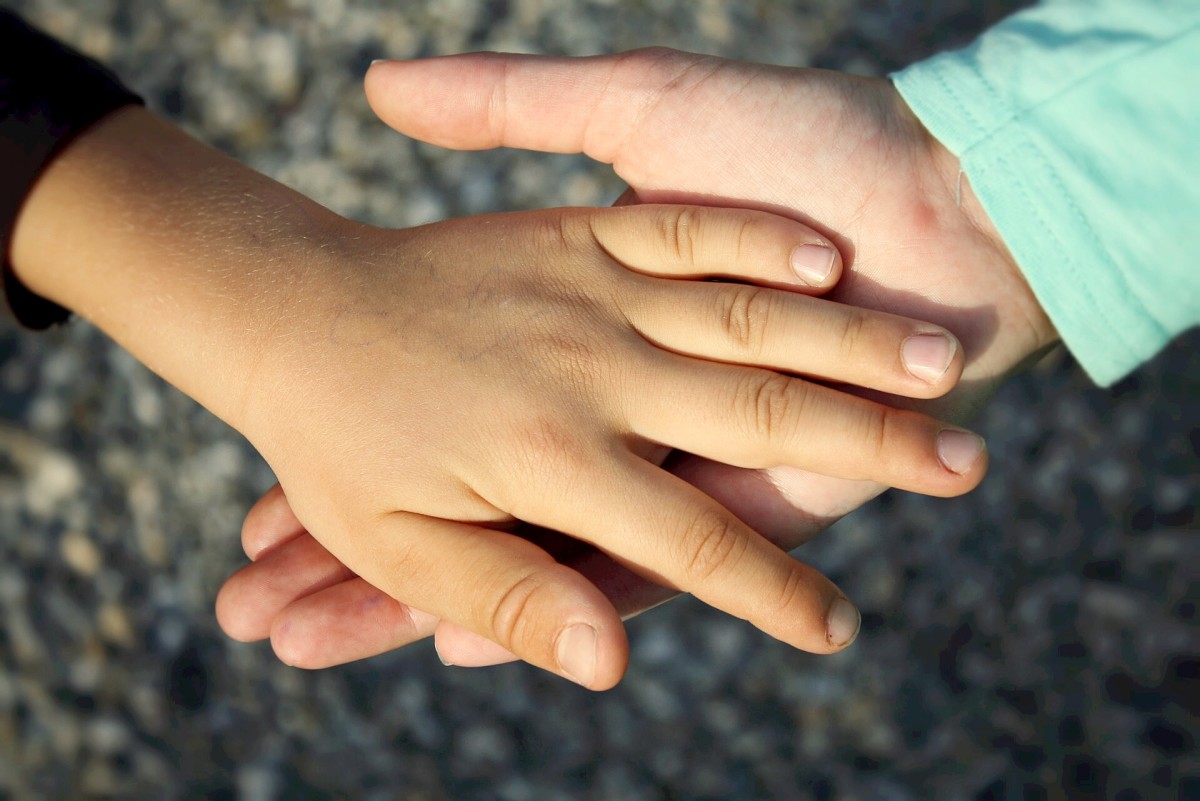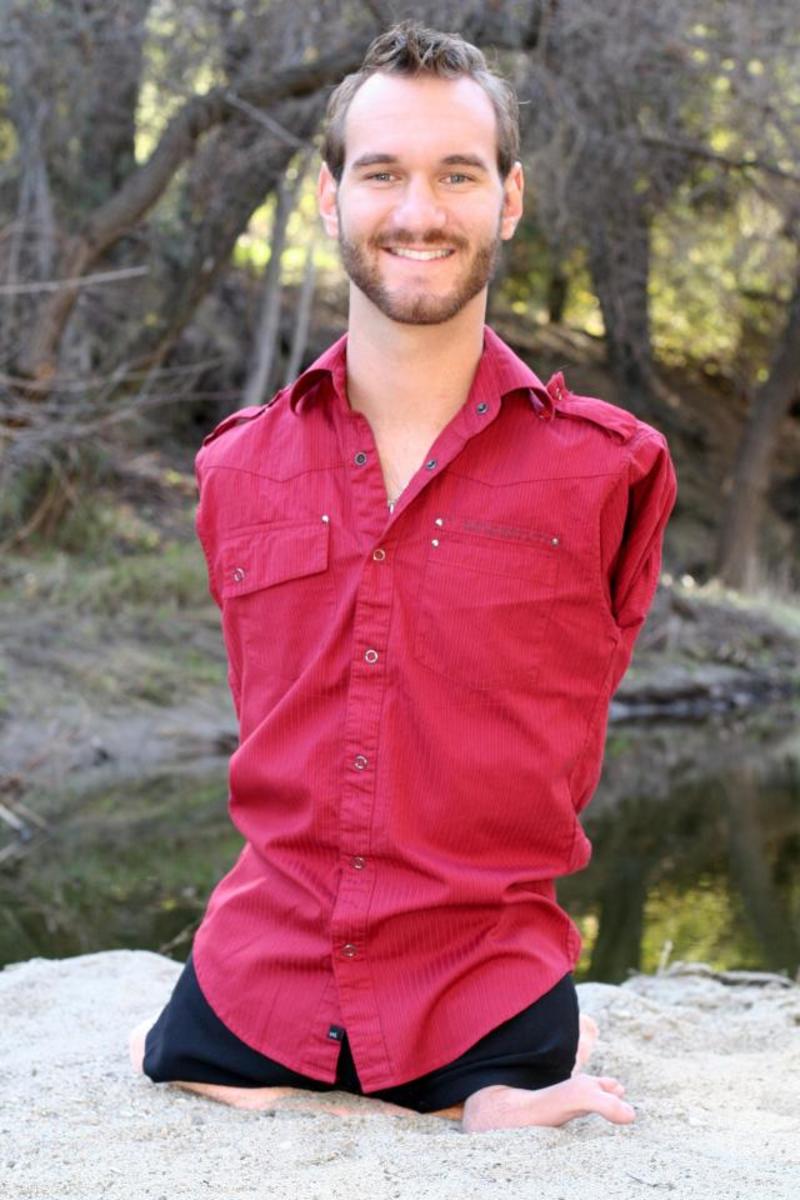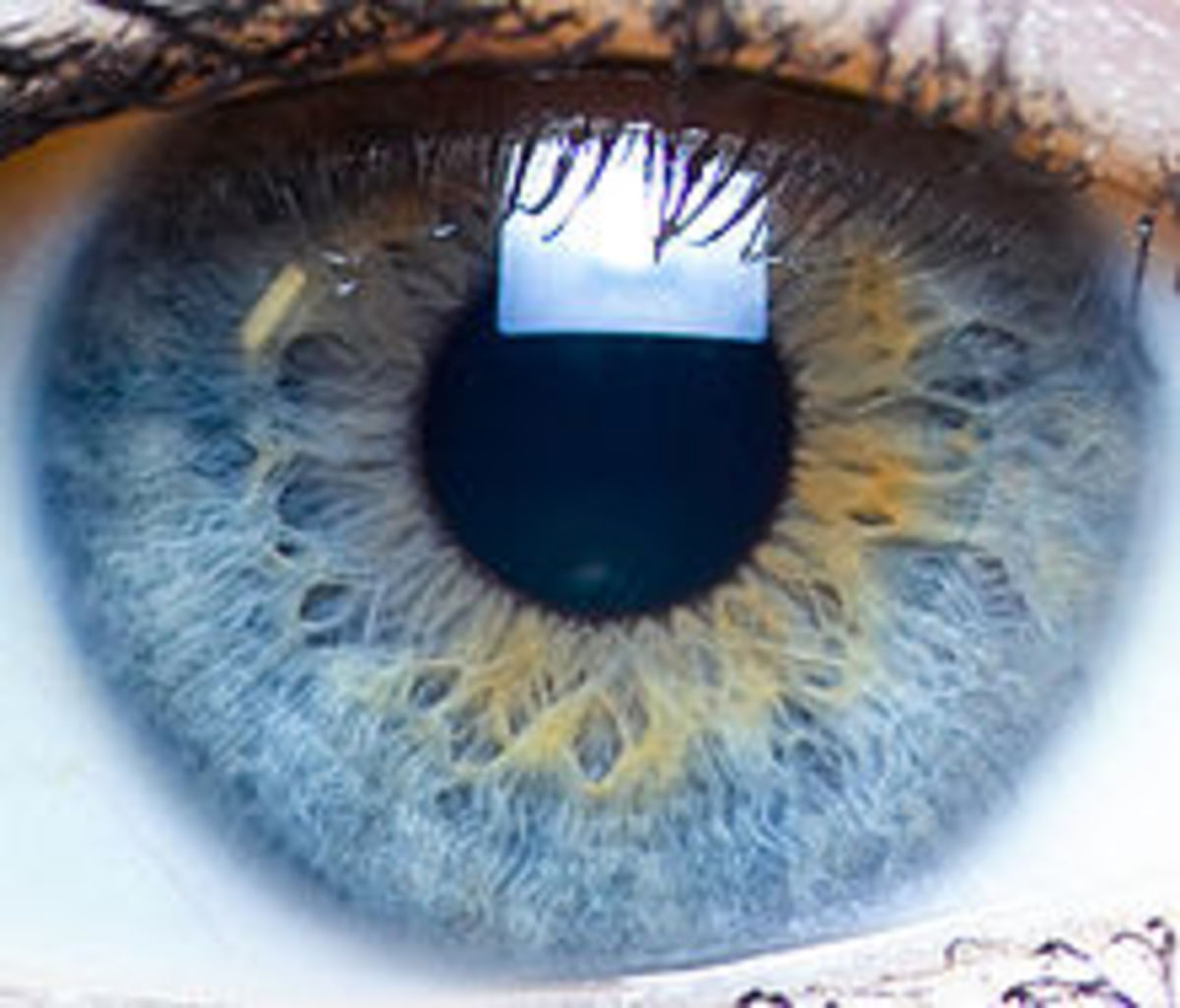How to Overcome Limitations

There’s a woman I know, who is in her nineties and who for this article I’ll call this Bessie. Bessie still laments that her parents didn’t have enough money for her to go to college. Because of this she didn’t get the job of her dreams and missed out on chances in life. Because life on the farm had to come first she didn’t get to do what she wanted.
That’s Bessie’s story anyway, and given her age it doesn’t seem likely she’ll change it now. Her mother has been dead for over 40 years and her father for around 30, yet Bessie still believes that it was because of them she didn’t get to do what she wanted in life.
And then there’s Nick Vujicic. This young man got married in February 2012. Two months later he went skydiving for the first time. While still a young boy he started a charity to raise money for his school. He has been giving motivational lectures since he was 19.
Nothing so unusual about getting married you may think, and plenty of people skydive these days. Even raising money for charity as a kid isn’t that unusual, though the lectures are an achievement, sure.
Oh, I forgot to say he has also written his life story: Life without Limits: Inspirations for a Ridiculously Good Life. And did I also forget to mention that Nick Vujicic has no limbs? He was born with no arms or legs and only one malformed foot.
You can see Nick in action in the Video below.
If you ever need a reminder that limits are mind-made, watch this astonishing young man.
What makes the difference between Nick and Bessie?
How is it that one person who apparently has so many disabilities can achieve so much, while someone else can achieve so little? And perhaps more importantly, how can someone in Nick’s position be happy enough to refer to his life as “ridiculously good” and say he is not disabled, while Bessie has taken anti-depressant medication on and off for 40 years?
Nick Vujicic is a Christian so perhaps that explains it? But Bessie is too, so that’s not it. In spite of apparently both having the same religion they have very different views on God. Bessie is pretty sure God is watching out for her sins and will punish her if she does anything wrong.
Nick Vijicic is pretty sure that God is watching out for him.
It would be easy to judge old Bessie and to say she should have let go of old grudges and lived the life she wanted, especially after her parents died. It would be easy, but my purpose in writing this is not to criticize, but to see what we can learn from these two people that can enable us to live our lives closer to Nick’s way than Bessie’s way.

The key to overcoming limitations lies in our beliefs.
Bessie was born in an era where expectations for girls were low and she was born in a community where expectations in general were low. She felt constrained and so she has acted that out most of her life. These are some statements I have heard Bessie say:
“I’m stupid.”
“I had to stay home.”
“The animals always came first.”
“I cried myself to sleep and nobody cared.”
From this it’s reasonable to conclude she holds these beliefs:
I’m stupid. I am unloved/unlovable. I matter less than animals do.
Bessie has not considered that her beliefs might not be true.
Nick feels without limits, and repeatedly says that he can do anything he choses to do. He hasn’t always felt this way and as child became very depressed. At ten years old he tried to drown himself in the bath. What stopped him was realizing how upset his parents would be and how much he loved them. From there it was a slow process of learning not to focus on what he can’t do, but on what he can. He stopped believing what he calls, “the lies in the head.”
We all have lies in our heads, and for most of us the most powerful lie is the same one Nick faced: “I’m not good enough.”
Overcoming Limiting Beliefs
The first step to overcoming limiting beliefs such as that one is to realize it is a belief. If you simply believe something is true, it doesn’t occur to you to question it. But when you open to the possibility that it might not be true, or even that it might not to true in all circumstances, then change becomes possible. The human mind is amazing in its possibilities, and yet it keeps bringing us back to the same old stories if we aren’t careful. Bessie is so used to believing that she was prevented from living the life she wanted that she feels indignant if anyone suggests otherwise. “Of course I couldn’t have gone away,” she says. “What would my parents have thought!”
Our experiences and thoughts about those experiences form neural pathways in our brain and the more we repeat an action or thought the stronger the pathway becomes. Unless something happens to create a new pathway, that is. Even then, our thoughts frequently pull back towards the old way, at least for a time. So change doesn’t always come instantly as we waver between the old and new pathways, old and new ways of thinking. But it is possible.
What can we do to ensure we live our lives closer to Nick’s way than to Bessie’s way?
Things aren’t always how they seem to be

Begin to notice your thoughts and beliefs.
It helps to write them down. If there is an aspect of your life that is less successful than you’d like, take some time write down as many beliefs you hold about this as you can. Don’t censor your thoughts or spend ages trying to come up with the right answers. The point of this exercise is to take an honest look at where you are now, a beliefs inventory.
When you read back over your list, you will almost certainly notice that some of your beliefs conflict with others. For instance many of us want more money, and we believe, “More money will make me happier.” But we also believe, “Rich people are greedy and selfish,” or, “Nobody likes rich people.”
Whichever aspect of your life you chose to focus on, if you aren’t getting what you want, it’s likely that you will find beliefs such as, “I don’t deserve it,” “I’m not good enough,” or “There’s no point hoping it will happen because then I’ll just be disappointed.”
Some people shun examining beliefs because they think it’s magical thinking to say that what we believe affects how our life turns out. I partly agree with that, in that if all you do is chant affirmations in the hope of drawing what you want to you it is not likely to work.

Question your beliefs
If you examine your beliefs with the intention of seeing the truth and letting go of anything that stops you from living life to the full, then how you behave will change – and you are more likely to go beyond previous limitations.
I don’t know the exact process Nick used to question his beliefs, but a process that works well for me is The Work of Byron Katie. I recently had several different pieces of writing to do for a deadline, and due to other commitments I was behind. I started to feel anxious, and tired. Instead of pushing on, I stopped and wrote in my journal and noticed a recurring thought that was causing my anxiety.
That thought was: “I’ll mess it up; I always do.”
Here’s how my inquiry turned out:
Is it true?
“No.” (I had several recent successes, it was easy to see this thought wasn’t true.)
Next I answered the question:
How do you react when you think that thought?
“I feel anxious. Images of failure come into my mind. I imagine something happening to prevent me succeeding: sick kids, or illness for myself. I imagine making excuses and I feel unworthy. To counter this I try to push away the fear and to reassure myself with times I’ve succeeded, but the reassurance doesn’t last long before the fear comes back.”
I came to the fourth question in this process:
Who would you be without this thought?
“I’d see I can’t even know it would be best for me if things worked out the way I think they should – that for all I know not completing these assignments could be the best outcome for me.”
By now I felt much calmer, and instead of fighting any remaining fear, I welcomed it, with the result that it eased.
The final part of this process is to turn the original statement around and find 3 reasons why each turnaround is true.
“I will mess up; I always do,” became: “I won’t mess up. I don’t always do,” and, “I tidy up; I always do.”
Immediately after this, I realized there was a different way of tackling the assignments that meant I could work more productively and achieve the goal more easily.
This is what happens when we question our beliefs, and when we welcome the feelings that go along with those beliefs. Most of us spend a huge amount of energy avoiding that one particular belief that Nick Vujicic overcame. “I’m not good enough.” He now sees his purpose in life as helping others do the same.
Purpose
Having a sense of purpose is another aid to overcoming limitations. Parents have been known to lift cars to rescue a child trapped underneath, and every mother knows how it’s possible to go without sleep for days while in labor to give birth.
Nick Vujicic feels very strongly that his life has a purpose. He sees his purpose as helping others.
Helping Others
For many people besides Nick the strongest motivator of all is helping others. If you think that achieving your dreams will put you into conflict with or harm others, you are less likely to go ahead. (Unless you have a psychotic condition.) Bessie felt convinced that if she tried to achieve her dreams it would conflict with her parents, so she stayed home. She experienced conflict with her parents anyway, particularly her mother.
Nick Vujicic’s autobiography is available on Amazon
Allowing others to help us, feeling gratitude and a sense of abundance.
Although Nick Vujicic lives independently, his parents were very supportive when he was a child. From what he says about his parents and others it is clear he feels grateful and that he feels fulfilled in life.
Bessie does allow people to help her, and for some things she is grateful, but just as often she feels that whatever help she got isn’t enough and wants more. In other words, she feels a sense of lack much of the time.
Feel emotions and let them go.
Bessie has been holding on to resentment for most of her life, and has no idea that she could let it go. Often we hold onto resentment out of twisted sense of pride, and a belief that somehow letting go would let the other person off the hook. But as Bessie’s case clearly illustrates, she’s the only person on the hook. To be able to let go of an emotion we first need to be fully willing to accept and welcome it. Nick Vujicic did feel angry at God for a while, but he chose to let that go and instead of resenting what he didn’t have he chose to feel grateful for all he had.
When we stop seeing emotions as caused by something outside of us and begin to take responsibility for our feelings and our success or failure we start seeing opportunities in life where once we saw only obstacles to overcome. This is what enables us to overcome limitations.
More Examples of Overcoming Limitations by writers on HubPages
Steph Hicks, has written about her own experience of: Running Marathons and Other Races with Insulin Dependent Diabetes A very inspiring tale!
Ripplemaker has written about: The Path to Happiness: How I Found Happiness Within Myself
Billybuc has written about a man he finds inspiring, and I think you will too. The Human Experience: The Arthur Boorman Story









